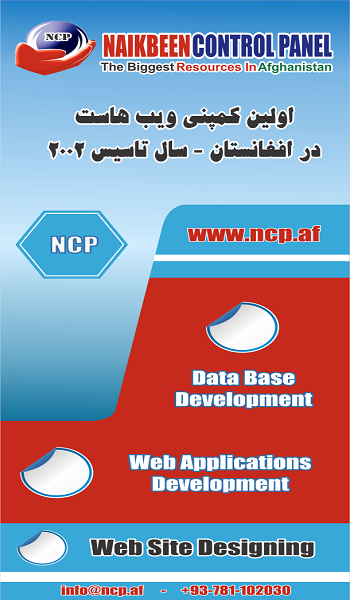PU-AMI (known globally as Première Urgence Internationale, PUI) is a non-governmental, non-profit, non-political and non-religious international aid organization. PU-AMI’s teams are committed to support vulnerable communities and populations, those marginalized, hit by conflict, natural disaster or economic downturns. PU-AMI’s main objective is to contribute to reduction in morbidity and mortality, and provide emergency relief to those in immediate need in order to help them regain their dignity.
Afghan mission is the oldest of PUI missions, with the first medical intervention launched in 1979 just after the Soviet troops crossed the country’s borders. PU-AMI teams currently deliver the integrated health care, combined with nutrition, psychosocial support; water, sanitation and hygiene (wash), as well as trauma services. The organization implements projects mainly in eastern parts of the country, and increasingly in the South-East Region. Since the COVID-19 outbreak in 2020, PU-AMI has also positioned itself as one of the main actors in preparedness and response to the pandemic, implementing health and wash-cantered activities at health facilities and community level in Kabul and beyond.
Globally, PUI provides assistance to around 6 million people in 23 countries and across 5 continents: Africa, Asia, Middle East, Latin America, and Europe.
Responsibilities and particular assignments
Psycho-Social Support Responsibilities:
Sensitize, problem-solve, dialogue, and mediate with the wider population on issues related to war, economic crises, torture, trauma, and GBV.
Conduct community awareness sessions on psychological distress and available mechanisms of psychosocial support.
Provide group and individual psychosocial support to mothers and caregivers of malnourished children at the health facility level.
Refer patients to specialized services as per area-wise service mapping when necessary.
Promote individual and familial self-sufficiency and resilience.
Preserve beneficiaries' safety, confidentiality, and independence.
Data Collection and Reporting:
Conduct screening and assessment of psychological distress among beneficiaries.
Utilize PU-AMI data collection tools proficiently to collect, screen, and assess data accurately and submit reports in a timely manner.
Collaborate closely with PSS Supervisor and database staff to ensure quality reporting.
Perform data entry of collected information from the field/health facility level.
Craft individualized progress reports to share relevant data with stakeholders.
Fill necessary documents to ensure quality reporting.
Provide monthly-based reporting and ensure confidentiality in data protection.
Working Environment and Coordination:
Provide psycho-social support and psychological first aid to survivors who have experienced war trauma, torture, gender-based violence (GBV), and natural disasters.
Work closely with the health facility director and nutrition counselor to ensure internal referral.
Follow the instructions of the director and PSS supervisor for on-the-job training.
Attend timely stimulation sessions.
Professional Development and Self-Care:
Engage in self-care practices through supervision, debriefings, on-the-job training, and shared sessions.
Attend all PSS/PFA-related trainings facilitated by PU-AMI.
Participate in weekly MHPSS supervision/on-the-job training meetings.
Follow up on MHPSS cases as needed and develop action plans for beneficiaries' progress.
Additional Responsibilities:
Assist with any other related activities as required by the expatriate MHPSS Coordinator or Deputy MHPSS Coordinator.
Undertake any official Tasks assigned by the managers of MHPSS departments and other relevant program departments to improve project activities.
Objective 1: Management of PSS Project Activities
Activities/Main duties:
Provide psycho-social support, and psychological first aid to survivors who have experienced war trauma, torture, gender-based violence GBV and when necessary to survivors of natural disasters.
Providing psycho-social support to pregnant and lactating mothers and caregivers of children with malnutrition in group and/or individually, as applicable and informed by activity design.
Work with and for individuals with psychological distress and psychosocial disabilities as per cultural context and following activity guidelines/SOP. Provide necessary awareness, psychoeducation as per screening and admission criteria for Group PSS Sessions and/or individual consultation to beneficiaries with psychological distress.
Follow programme guidelines on admission and discharge of beneficiaries from intended PSS interventions and timely share activity data with PSS Supervisor and database officer.
Sensitize, problem solve, dialogue and mediate with the wider community groups and leaders about issues of war, economic crises, torture, trauma and GBV on mental and psychological well-being of individuals and families and promote activities that foster unity and social cohesion.
Objective 2: Reporting and documentation
Activities/Main duties:
Timely prepare and share weekly, monthly or quarterly activity data and report as per the project’s scheme.
Ensure provision of ad-hoc base reports for some specific issues such as security, challenges against the work progress and so on.
Maintain project data and beneficiary information confidential and keep the data-records in locked cabinets at the respective work-stations.
Discuss data related challenges and difficulties (*including project activities) with Project Supervisor and PSS Supervisor during their field visits and/or supervision sessions and find amicable solutions in consultation with MHPSS Coordinator.
Objective 3: Code of Conduct and Responsibilities
Activities/Main duties:
Follow PU-AMI Code of Conduct, humanitarian and IASC MHPSS principles while delivering PSS services to wider groups of communities in crises.
Ensure safety, dignity, and confidentiality across project activities for the beneficiaries and other actors being served by the program.
Prioritise appropriate selection of beneficiaries following project guidelines and promote and protect mental health and psychological well-being of all concerned.
Report project-specific challenges and difficulties timely and amicably to project supervisors, and find mutual solutions in the larger interest of the project.
Attend project team meetings, progress review sessions, supervision sessions, orientation and refresher trainings as planned by the project team.
Bachelor's degree in counseling, psychology, or social work, Certified diploma in psychosocial counseling by MoPH; psychologists with a background in health and nutrition in the NGO/INGO context will be preferred.
Minimum of two years of experience providing group and individual support session, or therapy to individuals, and groups, with complex trauma histories.
Familiarity with the local context, language, culture, and stakeholders is essential; individuals from the relevant province will be preferred.
Ability to speak, read, and write in local languages is preferred, especially Pashto and Dari.
Ability to travel independently across project sites and locations within and between provinces.
Ability to work committedly for humanitarian causes and principles.
Ability to work in multicultural, multidisciplinary teams is essential.
Dear candidates,
To apply for this vacancy, please use the following link:
https://docs.google.com/forms/d/e/1FAIpQLScfIzdm_mNU-zm5_KF6-se6THOLLsxyywAXAEJ7Fn7BF66vWw/viewform
If the link above does not work by clicking on it, please copy and paste it in the browser address bar.
Make sure to press submit at the end of the application.
Please note:
You are allowed to apply only before the closing date
Only the candidates who meet the mandatory qualifications/requirements will be considered for the longlist
A maximum of 15 best candidates from the ones who meet the mandatory qualifications/requirements (longlist) will be invited for a technical test (shortlist)
If you are not invited for a technical test within a month’s period of time, please consider that your application was not considered for this vacancy
Validated copies of academic certificates/diplomas will be requested only if called for an interview
Kind regards,
The PU-AMI HR Team

